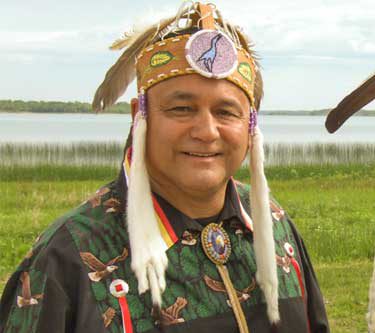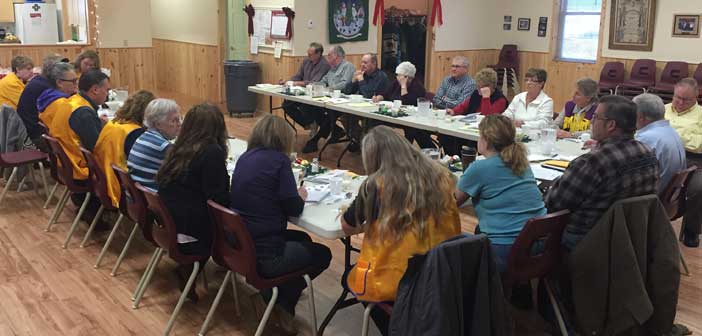TORONTO—In an historic three-day long schedule of meetings, workshops and discussions, representatives of the Chiefs of Ontario, including Grand Council Chief of the Anishinabek Nation Patrick Madahbee, met with provincial cabinet ministers, as well as with Premier Kathleen Wynne, to discuss resetting the First Nations relationship with Ontario.
The ‘Leaders in the Legislature’ event, as it was termed, consisted of a series of roundtables for First Nations leaders and Ontario Cabinet Ministers addressing key issues such as resource benefit/revenue sharing, Treaty awareness, health, education, infrastructure, economic development and missing and murdered indigenous women.
“Addressing First Nation issues benefits everyone living in Ontario,” said Minister of Aboriginal Affairs David Zimmer in a press release. “First Nation youth are the fastest-growing segment of Canada’s population. When First Nation communities and people succeed, all of Ontario succeeds. Working together with the Chiefs of Ontario, we can make real progress in closing the socio-economic gap and creating a province where everyone has the opportunity to reach their full potential.”
The summit builds on events over the past summer to commemorate the signing of the Treaty of Niagara. During the commemoration, First Nations and Ontario committed to working together to renew relationships.
First Nations leaders are calling the time well spent and a clear signal that the province is willing to move forward on addressing critical issues in First Nation communities. Chief Madahbee echoes this statement.
“What it really boiled down to was creating a relationship,” he told The Expositor. “In the past, we’ve been given 10 minutes to speak with the premier, but this was different.”
Chief Madahbee said the province and chiefs decided on a two-pronged approach moving forward to rebuild the relationship: one focussed on regional diversity with the other a common thread with First Nations from around Ontario. The two groups have also agreed to develop an accord with meetings set up for as soon as January.
“Our chiefs called these meetings in order to reset the relationship with the province,” Ontario Regional Chief Stan Beardy said in a press release. “Ontario has responsibilities to the treaties which must be honoured, and we are committed to working with them in a meaningful way. Over the past three days, our chiefs covered many topics and priorities from education and health to murdered and missing women.”
First Nations leaders presented a proposal to the premier titled ‘Polishing the Chain’ to outline a commitment to renewing the relationship between both parties. The term ‘Polishing the Chain’ references the Covenant Chain of Friendship, which was extended to all parties at the Treaty of Niagara, 1764.
“We had a frank exchange with the premier,” said Grand Chief Gord Peters of the Association of Iroquois and Allied Indians. “In the end, we agreed to undertake fundamental discussions which will strengthen our relationship. This kind of dialogue is necessary to affirm real change.”
Topics of discussion also included resource benefit/revenue sharing, treaty awareness, mental health promotion, palliative and long-term care, clean drinking water, education, poverty alleviation, and missing and murdered indigenous women.
On November 26, the Honourable David Zimmer, minister of Aboriginal Affairs, delivered the following address to the legislature:
“Mr. Speaker, I rise in the Legislature today—on Treaty 13 land and the traditional territory of the Mississaugas of the New Credit—to speak of the importance of treaties and the treaty relationship between the Province and treaty partners. I’d like to recognize some of the people in the gallery here today and their tireless work to promote a better understanding of treaties to this legislature and all Ontarians. Noticeably absent is the late Grand Chief Stan Louttit, who passed away in June. He was a staunch advocate for inherent and treaty rights throughout his 20-year political career. Grand Chief Louttit was an exceptional leader who will always be remembered for his dedication to improving the lives of the Mushkegowuk people living in Northern Ontario.”
“Treaties and related agreements were made in Ontario throughout the 18th, 19th, and early 20th centuries. They are still part of what we do today. For instance, with the Algonquins of Ontario, an agreement is being negotiated today in the 21st century. Treaties reflect the historic reality that First Nations were the original peoples and occupants of the land and that they were never conquered. They represent solemn agreements to live together on this land through the formal exchange of promises that created rights and responsibilities for Canada, Ontario and First Nations. They formalize a relationship between the Crown and First Nations signatories based on principles of trust and mutual respect and were meant to be lasting and meaningful agreements. Métis played a significant role in the province’s treaty history, acting as facilitators and interpreters during some of the treaty negotiations between First Nations and the Crown. In addition, historically, Métis received annuities under some treaties and in one instance signed a treaty adhesion.”
“Ontario’s commitment to treaties is profound and public. Since 2005, we’ve been happy to convey that we respect Aboriginal and treaty rights protected by Section 35 of the Constitution Act, 1982, and are committed to meeting the Province’s constitutional and other legal obligations in respect of Aboriginal peoples. The Province, and all Ontarians, benefit from the treaties, and must recognize obligations under them.”
“If I can be frank—the Crown has not always upheld its obligations under the treaties. There are many historical examples when Crown governments, including Ontario, did not consider treaty rights when making decisions. This created a strain on our relationships with First Nations. It communicated a lack of respect to our treaty partners.”
“Today, we are taking steps to address the legacy of these actions. On behalf of the Province, I affirm this government’s commitment to work with our treaty partners. For example, the Ministry of Children and Youth Services is working closely with Aboriginal partners on an Aboriginal Children and Youth Strategy that aims to increase the availability of culturally appropriate services, and to enhance community control over service design and delivery. Together, through respectful and meaningful dialogue, we will come to better understandings about different perspectives on treaties, and work together on practical initiatives that support a strong treaty relationship.”
“An important foundation for all of this work is greater public awareness. Initiatives such as the Truth and Reconciliation Commission have led the way in shedding light on the darker periods of our shared history. Most Ontarians are unfamiliar with the province’s treaty history. To begin to rectify this, we distributed the First Nations and Treaties map of Ontario to every public elementary and high school in the province to begin raising awareness about treaties and our shared history. This is the first map of treaties published by the government since the 1940s. We also plan to work with our First Nations partners to develop treaties-related curriculum materials to help ensure that all Ontario students have a better understanding of First Nation communities, cultures and perspectives. We launched a social media campaign on treaties that has quickly reached more than a million readers. And today, I am proud to announce that we will be working with our partners on a Motion to establish an annual treaties awareness day in Ontario, to be held each year to promote awareness of treaties and the treaty relationship, particularly among students but also among all Ontarians. We will work with our treaty partners to identify a day to designate as a treaties awareness day.”
“Treaties are the reason Canada, and Ontario, exist as we know them today. They were foundational for the development of this country and allow us to continue to live and work in Ontario. As such, newcomers to Canada owe as much to the treaties as the descendants of early settlers. Ontario will continue to build a strong partnership based on mutual respect and fairness.”




